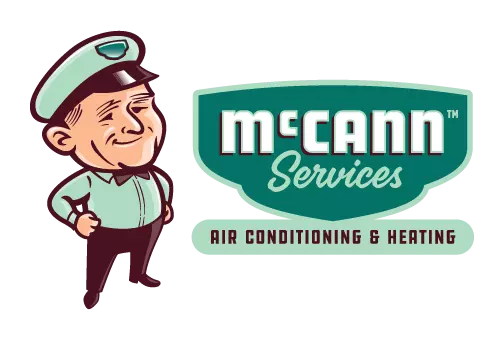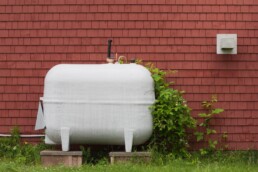Winter in Houston brings relief from the intense heat and humidity of the summer months. January officially ranks as one of the coldest months in the area. As the temperature drops, your heating system must be able to handle these dips in temperature.
If you are interested in comparing different heating fuel options, we have you covered. This article compares different fuel options and gives you insight into the pros and cons of propane, natural gas, and electricity. Keep reading to stay warm during a cold winter.
Comparing Heating Fuel Options
In Houston, where winters are relatively mild compared to colder regions, the choice of a heating system depends on factors such as efficiency, cost-effectiveness, and personal preferences.
Propane Fuel
Propane is known for its high energy efficiency due to having a high heat output when burned. This converts to lower energy bills for consumers, making it an attractive option as a heating solution.
It is commonly used for heating:
-
Homes
-
Water heaters
-
Stoves
-
Ovens
-
Grills
Pros and Cons of Using Propane
Propane is energy efficient, making it a good option for heating systems and appliances.
Propane appliances are generally easy to use and provide instant and precise control over the level of heat. This offers users convenience and flexibility.
Propane users often have on-site storage tanks, providing independence from utility grids. This can be advantageous during power outages or in areas where natural gas infrastructure is not available.
Propane is considered a clean-burning fuel. It creates less greenhouse gas emissions than some other fossil fuels, contributing to better air quality.
Propane is widely available, with many fuel providers across the United States. Additionally, it has a long shelf life and does not degrade over time.
In some cases, there are government incentives or rebates for using propane. This can include things such as using environmentally friendly applications like propane-powered vehicles or energy-efficient appliances.
Propane performs well in cold weather conditions, making it a reliable source of energy for heating during colder temperatures. A higher grade of fuel may offer the best efficiency.
The price of propane can be subject to market fluctuations that can influence your heating expenses.
Propane users need on-site oil storage tanks, which may require space on the property. Installing and maintaining these tanks can be an additional consideration.
While propane is considered cleaner than some fossil fuels, it is not a renewable energy source. Propane is a flammable gas, and in rare instances, leaks can occur. Proper safety measures are essential to mitigate this risk.
The initial cost of purchasing propane-powered appliances or converting existing systems may be higher compared to some electric options.
Natural Gas
Natural gas is a common heating fuel in urban areas, including Houston. It is delivered through pipelines and does not need on-site storage. Natural gas heating systems are well known for their reliability and cleanliness.
Pros and Cons of Using Gas
Natural gas is often cheaper than other heating options, which can help you save on your energy bill.
Natural gas furnaces are generally more efficient than some other heating systems, providing effective warmth without wasting too much energy.
Natural gas provides a dependable source of energy, and you won’t face disruptions in supply like you might with some renewable sources. Natural gas heats up quickly, providing a rapid response to temperature adjustments.
While natural gas is considered cleaner than some other fossil fuels, it still contributes to carbon emissions and isn’t as environmentally friendly as renewable energy sources.
Natural gas is a finite resource, and its extraction and use contribute to the depletion of non-renewable energy sources.
Natural gas prices can also be subject to fluctuations, and this may impact your heating costs.
There’s a risk of gas leaks, which can be hazardous. It’s crucial to have proper ventilation and regularly maintain heating systems to ensure safety.
Electric Systems
Electric heating systems are used in many homes. While electric heating may be more common for smaller spaces, it’s essential to consider the overall energy efficiency.
Pros and Cons of Using Electric Heating
Electric heating systems produce no on-site emissions, making them environmentally friendly and contributing to better air quality.
Electric heating systems generally have fewer safety concerns compared to some other heating methods, as there is no combustion involved.
Electric heating systems are often easier to install and can be used in various settings, making them suitable for different types of homes.
Electric heating systems typically require less maintenance compared to some other heating systems, reducing long-term costs.
Prices can be higher than the cost of natural gas, which might result in higher heating bills.
Electric heating systems rely on the power grid. Power outages can disrupt heating, though this might be less of a concern in Houston.
The environmental impact depends on how the electricity is generated. If the electricity comes from non-renewable sources, it might still contribute to carbon emissions. Electric heating systems might take longer to heat a space compared to some other systems.
Key Considerations for Choosing the Best Option
You have done your research and understand the pros and cons of the above-mentioned fuel options. Before making up your mind, consider the following:
Consider the cost of:
-
Initial installation or conversion costs
-
Ongoing fuel prices and supply stability
-
Maintenance and repair expenses
-
Availability and cost of equipment
Evaluate these carefully:
-
Energy efficiency
-
Environmental impact of product
-
Local climate demands
-
Home size and layout
-
Fuel storage requirements
-
Local regulations
-
Health and safety considerations
-
Ease of use
Heating Fuel: Informed Decisions
Ultimately, the best heating fuel options for your Houston home depend on your specific needs. Consulting with a local HVAC professional can help you make an informed decision. They can assist with oil tank placement, assessment of your space and installment and maintenance of your new system.
For expert heating solutions in Houston and Bellaire, TX, look no further than McCann Services. We are trusted cooling and heating experts with extensive experience in providing the correct advice and products to our clients. Contact us today to find out how we can help you stay warm in Houston this winter.

